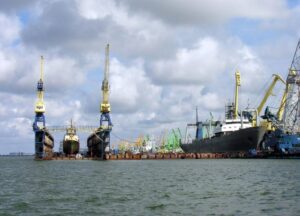
The profile ministries of Ukraine and Lithuania have agreed to launch a pilot project to develop multimodal transportation between the countries, according to the website of the Ministry of Infrastructure of Ukraine on Thursday.
In Klaipeda, Lithuania, a meeting was held between Minister of Infrastructure of Ukraine Oleksandr Kubrakov and Minister of Transport and Communications of Lithuania Marius Skuodis, during which the parties discussed issues of strengthening cooperation and prospects for new projects.
“Partnership in the field of transport is one of the priorities. We are restoring a dialogue on the implementation of an old idea – connecting the Baltic and Black Sea regions by rail. For both countries this is a chance to optimize logistics, increase the load on seaports and enter new world markets. We have already agreed to launch a pilot project, within the framework of which we will develop multimodal traffic between countries, including by increasing the flow of semi-trailers,” Kubrakov is quoted as saying.
He also noted the relevance of the resumption of the passenger railway route “four capitals” from Kyiv to Riga.
According to the Ministry of Infrastructure, there are currently large cargo flows between the Baltic and Black Sea regions, but the share of cargo moving from Ukraine is very low. At Klaipeda seaport, Ukrainian cargo accounts for only about 1-2% of all cargo. At the same time, according to the estimates of the Lithuanian side, the flow of goods from Ukraine could potentially be 10 times higher.
“For the implementation of multimodal cargo transportation by sea and rail, road semi-trailers will also be used as intermodal transport units. To make this possible, the ministry will initiate amendments to Ukrainian legislation, which will allow semi-trailers to be classified as cargo, and not as a vehicle,” the report said.
The launch of the pilot project is planned for September this year.
The successful implementation of the agreement, as noted in the Ministry of Infrastructure, has the potential to make Klaipeda seaport in Lithuania the northern gateway of Ukraine to Scandinavia and at the same time Odesa – the southern sea gate of Lithuania to the Black Sea region.
BALTIC STATES, BLACK SEA, DEVELOPMENT, LITHUANIA, TRANSPORTATION
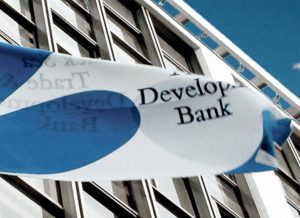
The Black Sea Trade and Development Bank (BSTDB) predicts an economic decline in the Black Sea region of more than 5% of GDP in 2020 with a further recovery of 3-3.5% of GDP in the next two years, president of the bank Dmytro Pankin has said.
“What we know is that the Black Sea region (along with the rest of the world) is going to experience contraction in 2020, most likely in excess of 5%. However, due to the low base, we expect a rebound in 2021 and probably well into 2022, leading to growth averaging 3.0-3.5% in 2021-2022,” Pankin said in an exclusive interview with Interfax-Ukraine.
“Despite the contraction observed in 2020, there is still a robust demand for BSTDB financing, which our bank is happily providing, although the nature of the demand has changed. Many large-scale investments have been deferred, or even cancelled, and we are seeing more demand for direct corporate lending, and for support to SMEs through local financial institutions. We would expect this demand to increase as economies rebound in 2021 and 2022, in parallel to a rebound in larger investments and infrastructure operations,” the banker said.
“As we all know, relaxed monetary policies and expansionary fiscal policies have resulted in ample global liquidity, which benefits both developed and developing countries. As a development bank, we try to direct this cheap financing to real economic activities both in Ukraine and other countries,” he said.
“However, issues with political stability can inhibit or at best, postpone those investments. To fully take advantage of this ample liquidity Ukraine and all other countries need stability, working rule of law, good governance, and other related factors in place. This is particularly relevant for infrastructure investments,” he said.
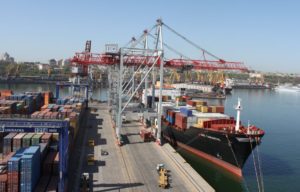
Ukraine’s Ministry of Infrastructure has announced competitions for the transfer of the property of the state companies Olvia Stevedoring Company (Mykolaiv) and Kherson Maritime Merchant Port and the relevant property of the Ukrainian Sea Ports Authority. According to an article published in the government newspaper Uriadovy Kurier, the concession for Olvia will be granted for 35 years, while the one for Kherson port will be granted for 30 years.
The main task for the two pilot projects is to bring international practices and technology to Ukrainian ports.
By law, the competition and determination of a winner must be completed in a little over three months.
The concessionaires are expected to provide a total of UAH 17.3 billion in investment for Olvia and UAH 1.4 billion for Kherson port. Investment will be aimed at renovating infrastructure and developing the ports.
Plans for the first three years include the construction of a new grain terminal with a capacity of 2 million tonnes per year at Olvia (UAH 1.56 billion) and high-priority modernization at Kherson port (UAH 216 million).
According to the Ministry of Infrastructure, more than 25 companies from Ukraine, the United States, China, France, Switzerland, the UK, Japan, Turkey, Qatar, and South Korea have expressed interest in the concessions. Nibulon, one of Ukraine’s biggest grain traders, said it might invest in Kherson port.
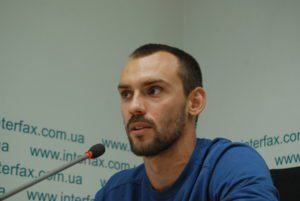
Master of sports swimmer Mykhailo Romanyshyn has said he intends to set a record by swimming the Ukrainian stretch of the Dnipro River from the Ukraine-Belarus border to the Black Sea.
“The swim starts on the border with Belarus on August 5, and the finish will be tentatively 27 to 30 days from then at the section of the river flowing into the Black Sea,” says a press release handed over to journalists.
Speaking at a press conference at Interfax-Ukraine, Romanyshyn said the swim would start in the village of Strakholissya, Kyiv region, near the Belarusian border and would end in Kherson’s Glory Park. He said the tentative distance to be covered is almost 1,000 kilometers.
The swim along the Dnipro is the first stage of the project. In a year, Mykhailo Romanyshyn plans to swim to cross the Black Sea from Odesa, Ukraine, to Istanbul, Turkey.
The project will allow the formation of a charitable fund to help young gifted athletes of Ukraine and conduct environmental and biological research.
“The project pursues several goals, but first of all it is to draw attention to the environmental problems of the Dnipro, popularize sports among our citizens and create a charity fund to help children,” project organizer Maksym Urakin said.
Mykhailo Romanyshyn’s team includes honored swimming coach of Ukraine Karen Abramov. “The swim will give unique information about the human body’s response to prolonged physical activity and prolonged exposure to water. We will study how much a person can adapt to water temperature that is lower than air temperature, what can be a person’s psychological condition when the swim lasts for 12 hours a day during about a month in any weather,” Karen Abramov explained.
During the swim, Romanyshyn’s team will monitor the state of water in the Dnipro. According to the preliminary program of the swim, every day the athlete will cover about 30 km and swim for about 12 hours.
He will be accompanied by a support group that includes his coach and a special vehicle will bring food and supplies for sleepovers. A police patrol boat will accompany the swimmer.
Swimmer Mykhailo Romanyshyn added that he would like to use his example to distract children from unhealthy habits and draw their attention to sports. “For our country to continue to have Olympic champions in swimming and other sports, the efforts of both businesses and authorities are needed. Without this the population will continue to decline,” Mykhailo Romanyshyn said.
Dmytro Strizhov, a multiple participant in IRONMAN international competitions, decided to support Romanyshyn and swim with him at one of the stages of the project.
Experts representing the national register for Ukrainian records will record the accomplishment.
The next stage of the project will be a swim in the Black Sea from Odesa to Istanbul, which the team plans to implement in 2020.
The project is supported by leading Ukrainian companies that prioritize environmental issues and the development of sports: the Arterium company, the Revealing Information law firm, A-95 Consulting Group, Maxevents, and the Interfax-Ukraine News Agency.
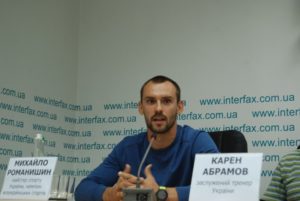
Master of sports swimmer Mykhailo Romanyshyn has said he intends to set a record by swimming the Ukrainian stretch of the Dnipro River from the Ukraine-Belarus border to the Black Sea.
“The swim starts on the border with Belarus on August 5, and the finish will be tentatively 27 to 30 days from then at the section of the river flowing into the Black Sea,” says a press release handed over to journalists.
Speaking at a press conference at Interfax-Ukraine, Romanyshyn said the swim would start in the village of Strakholissya, Kyiv region, near the Belarusian border and would end in Kherson’s Glory Park. He said the tentative distance to be covered is almost 1,000 kilometers.
The swim along the Dnipro is the first stage of the project. In a year, Mykhailo Romanyshyn plans to swim to cross the Black Sea from Odesa, Ukraine, to Istanbul, Turkey.
The project will allow the formation of a charitable fund to help young gifted athletes of Ukraine and conduct environmental and biological research.
“The project pursues several goals, but first of all it is to draw attention to the environmental problems of the Dnipro, popularize sports among our citizens and create a charity fund to help children,” project organizer Maksym Urakin said.
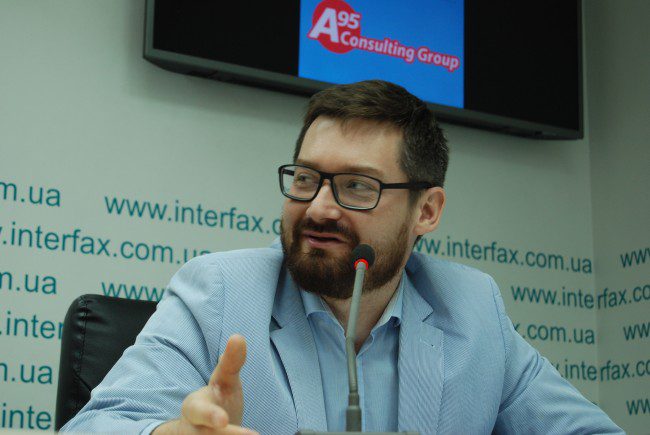
Mykhailo Romanyshyn’s team includes honored swimming coach of Ukraine Karen Abramov. “The swim will give unique information about the human body’s response to prolonged physical activity and prolonged exposure to water. We will study how much a person can adapt to water temperature that is lower than air temperature, what can be a person’s psychological condition when the swim lasts for 12 hours a day during about a month in any weather,” Karen Abramov explained.
During the swim, Romanyshyn’s team will monitor the state of water in the Dnipro. According to the preliminary program of the swim, every day the athlete will cover about 30 km and swim for about 12 hours.
He will be accompanied by a support group that includes his coach and a special vehicle will bring food and supplies for sleepovers. A police patrol boat will accompany the swimmer.
Swimmer Mykhailo Romanyshyn added that he would like to use his example to distract children from unhealthy habits and draw their attention to sports. “For our country to continue to have Olympic champions in swimming and other sports, the efforts of both businesses and authorities are needed. Without this the population will continue to decline,” Mykhailo Romanyshyn said.
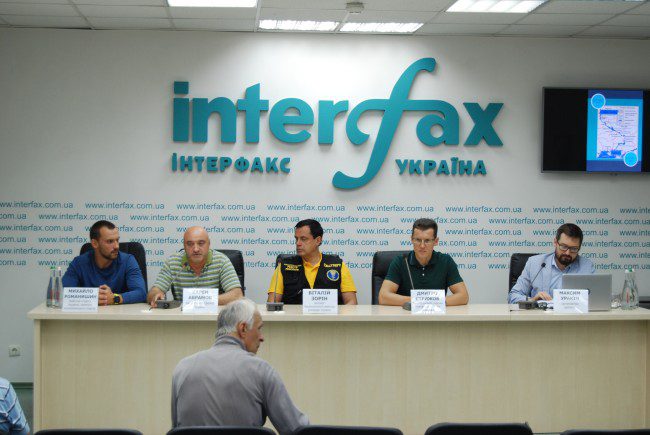
Dmytro Strizhov, a multiple participant in IRONMAN international competitions, decided to support Romanyshyn and swim with him at one of the stages of the project.
Experts representing the national register for Ukrainian records will record the accomplishment.
The next stage of the project will be a swim in the Black Sea from Odesa to Istanbul, which the team plans to implement in 2020.
The project is supported by leading Ukrainian companies that prioritize environmental issues and the development of sports: the Arterium company, the Revealing Information law firm, A-95 Consulting Group, Maxevents, and the Interfax-Ukraine News Agency.
